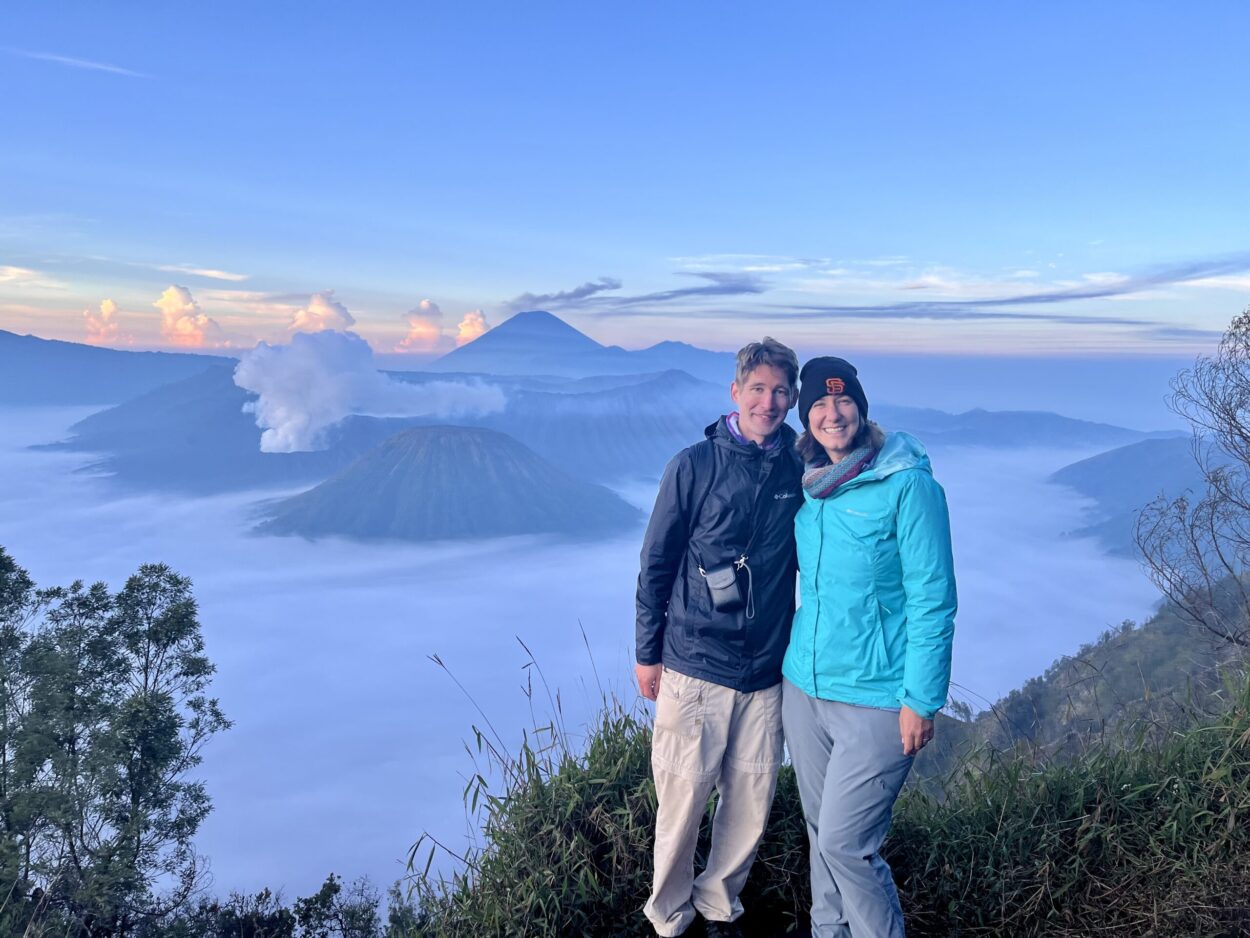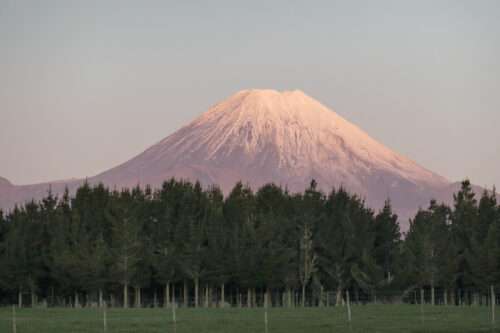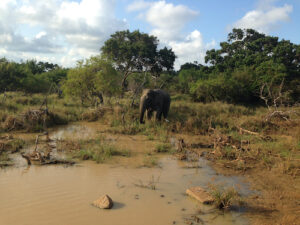Have you ever thought about taking a year off? Maybe some people you know did it when they were 18, before college. That’s the only normal time to take a year off for Americans, I know. But my husband and I took a year off when I was 34 and he was 37. And you know what? Not only was it one of the best decisions of our lives, but we also met hundreds and hundreds of (European) people our age doing the same thing.
People in their 20s, 30s, 40s; retired people; single people; couples; families with young children; families with older children; friends…everyone does this regularly: in Europe. So what’s so different? Why do so few Americans take a year off? How can we all do this?
Why and How to Take a Year Off
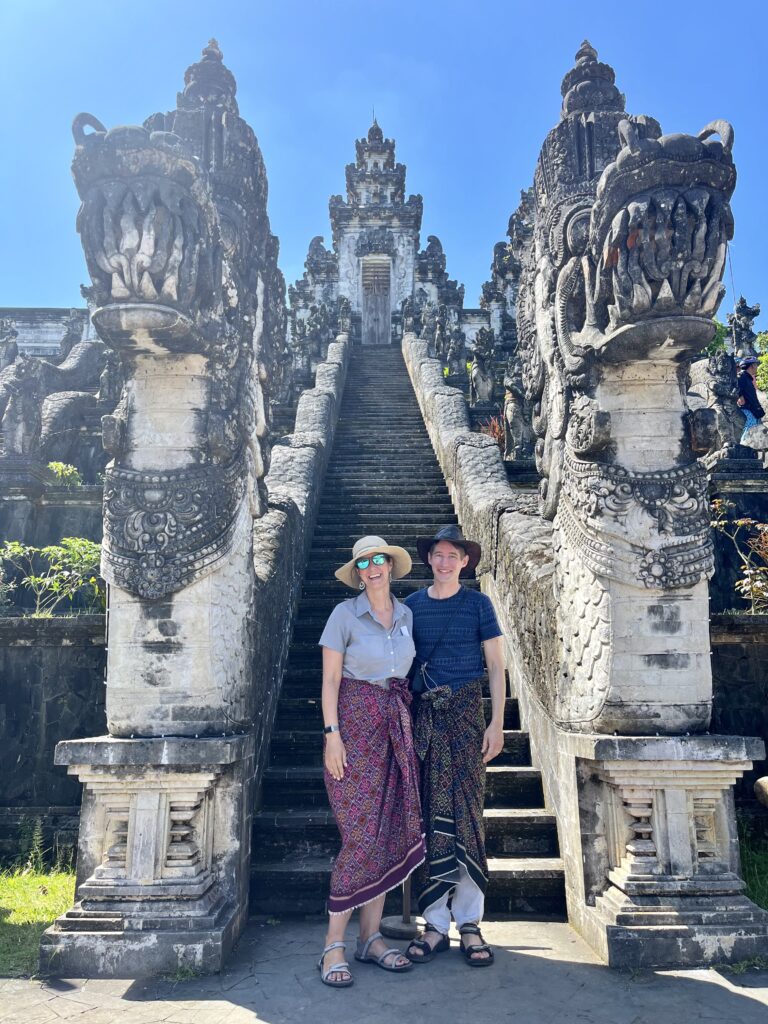
Americans’ Sick Work Culture
If you ask American college kids what matters, they’re likely to say “getting a good job.” And if you ask them what makes a job “good”, they’ll end up saying it pays well. But does this really make you happy? Many studies have shown that more money doesn’t make you happier…in fact, no matter how much money you make, you keep on thinking that a bit more would finally satisfy you! People making $50,000 think $100,000 would make them happy, people making $100,000 think $200,000, etc.
But it turns out, as long as you have enough money to have safe and clean housing, healthy food, healthcare, clothing, and other basic needs met- more money doesn’t increase your happiness. In fact, at a certain threshold, life satisfaction goes down a bit! In the U.S., in a study published in 2018, $65,000 was enough per person. Even though more money is not likely to increase happiness, Americans are still working all the time, not even taking all of the vacation days we have…even though Americans have some of the fewest vacation days in the world.
A book about Americans’ unhealthy relationship with work and how we can reset our lives to bring more satisfaction and joy is Simone Stolzoff’s The Good Enough Job, if you’d like to read more!
What does make you happy?
If you take Yale’s free online course about what does make people happy, it’s not money, it’s not stuff, it’s not grades or a fancy job title. What does actually work?
- Savoring experiences: actually being in the moment, telling others about an experience you had, thinking how lucky you are to get to do something, keeping a souvenir or photo of that experience.
- Gratitude: keeping a gratitude journal, writing a letter to someone you’re grateful to, visiting or calling someone you’re grateful for and telling them, saying aloud things you’re grateful for on a regular basis.
- Random acts of kindness: helping a stranger, reaching out to old friends, complimenting acquaintances, helping colleagues, etc.
- Social connection: talking to strangers, talking with a friend for an hour or more, etc.
- Exercise: can be as little as a 30 minute walk a few times a week to have huge benefits
- Sleep: getting at least 7-8 hours of sleep most nights
- Meditation: helps you be in the moment
- Spending money on new experiences, not stuff
If you look at this list, most of them don’t require any money at all, and all of them can happen especially well while traveling. When you travel, it’s not hard to feel grateful, or to savor your experiences, as everything is new and exciting. You’re likely to talk with strangers to figure things out, like your plans for the next day, and might end up hearing their life story and making a real connection. You’ll probably get much more exercise than normal, being outside, walking, climbing, and exploring the world- which will probably also help you sleep.
So if your goal is to be happier- stop worrying about work and making money. Take all the time off you can, and go travel!
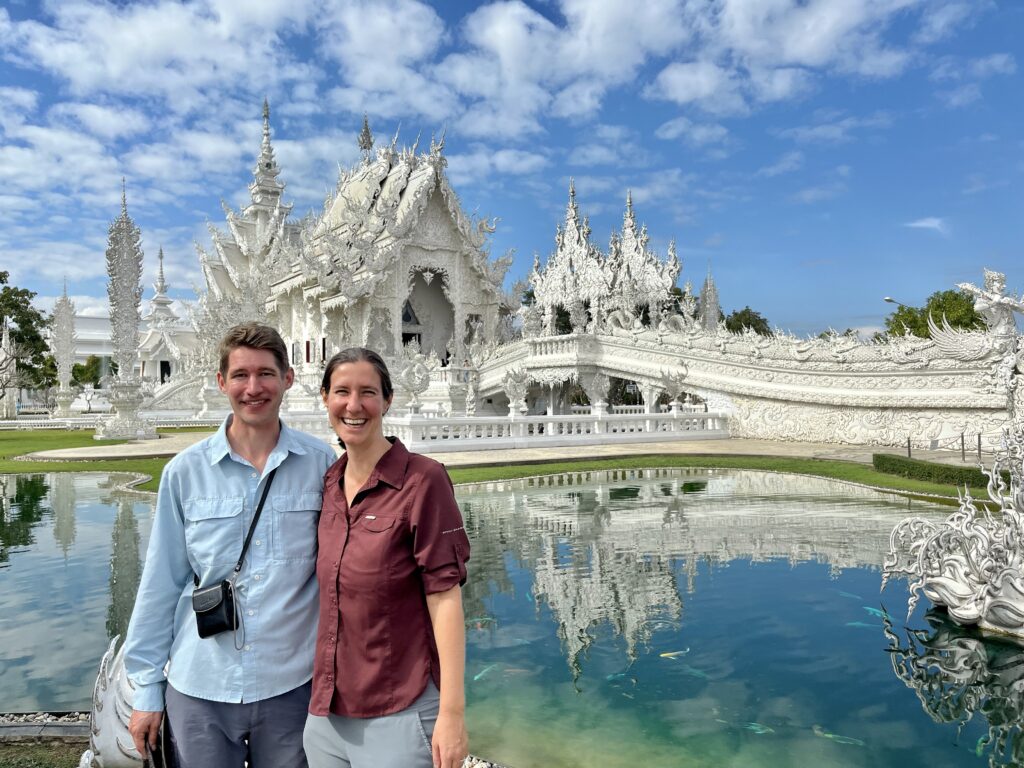
It’s too expensive to take a year off…
It’s expensive NOT taking a year off too! Do a quick calculation:
- In real life, how much are you actually saving each month? Multiply that by 12. Did you actually, truly save that much last year? Whatever that amount is…is that amount worth an entire year of working, or could a year of travel be more worthwhile? What will you value when you’re 80? No one ever wishes they had spent more time working. However much you actually saved last year: what would happen if you didn’t for one year? If you didn’t actually save any money at all last year…then you’re working all year for no reason at all! You can do that while traveling instead!
- Think about how much you spend on rent/mortgage for a year. What if you didn’t? If you rented your place out, or stopped renting? It sounds hard, but it is doable, and could even be profitable. What you think you need when you come back might be very different from what you think you need now anyway. You might not want to come back at all, and I’m pretty sure you won’t think you need as much space as you do now.
- You don’t have to spend money traveling. You can work along the way- workaway.com has paid and free places to stay in return for a few hours of all sorts of work each day, and https://wwoof.net/ is the place to look if you’re interested in seeing what life is like on organic farms around the world. Workaway allows you to filter for just paid, by location, and by type of work- you can teach English, work on a farm, take care of animals, do IT work, work in a hostel, etc. All of these jobs provide at least a free place to sleep and food, and some are paid, so you don’t have to spend money while traveling besides your flight. You could also advertise any skills you have while you’re abroad- we saw lots of signs for English classes, math tutoring, garden help, IT help, etc. in tourist hotspots. Whatever your hobbies/skills are, you could help out, meet locals, and cut down on costs if you’re up for it! If you sign up for Workaway using our link, you get an extra month free: Workaway referral.
- To be honest: we spent $40,000 on our year off for the two of us. If we were living in San Francisco, we would have paid more than that in rent/mortgage for a year…and for us, this included all flights, food, activities, and other expenses for a year. We rented out our apartment in Amsterdam, so we had no expenses back home and even made a bit of travel money that way.
- We only spent $10,000 on our wedding in the U.S. An average wedding costs $40,000- and that is just for one day. You could comfortably travel around the world with two people for the same amount of money! We had the savings, so we traveled relatively comfortably, staying in places where we had our own private room and bathroom, which was normally $10-$20 a night. We met many true backpackers who were spending far less by traveling in a smaller area (fewer flights), staying longer in one spot (able to do workaway or WWOOF for longer), and generally living more like locals. Then you can spend as little as $5 a night, and eat $3 or less meals in many of the places we were traveling. There are hundreds of backpacker-specific sites to help you do that. We averaged about $100 a day for the two of us…but that included flights and excursions.
- My husband took a gap year before university, and he used WWOOF and spent no money while traveling. He went all over Australia, and his only expense was the flight. You can spend as little or as much money as you find comfortable.
- You can get affordable insurance. You don’t need to be employed. Here’s one option that is valid for Americans and specifically designed for people who want to live and/or work abroad for a long time- digital nomads and other wanderers! This is what I would recommend if you’re American and want to travel freely for a year or more while also being free to come back to the U.S. for any emergencies or just to recharge. It’s called Safety Wing, and they have health insurance and travel insurance designed for remote workers. This is an affiliate link that helps me at zero cost to you- thank you for your support!
- If you’re not American and not planning on traveling to the U.S., then your country’s health insurance with a travel option is probably sufficient- just read the fine print very carefully if you are American or traveling to the U.S., as the U.S. healthcare is SO much more expensive than the rest of the world’s that there are normally separate conditions.
- Bottom line: Living your normal life is expensive. Taking a year off you can eliminate all of your regular expenses and replace them with adventure expenses…which can be far, far cheaper than your normal life. As in, beside flights, you could have zero expenses and make a bit of money, if you do Workaway or WWOOFing. What is a year off worth to you?
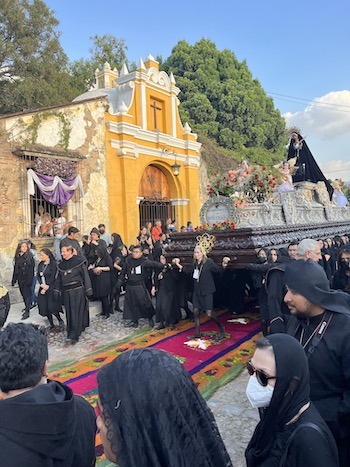
Photo credit: Victor
What about work?
You have a few options here, depending on your situation:
- Maybe you work remotely, and can work from abroad for 4 months, 6 months, or a whole year. If your job isn’t currently remote, but it could be, talk with your manager about whether it could be for a set amount of time. You can explain that you need to do this for your long term well being, for your mental health, for your ability to stay motivated on your job…and maybe you can make some connection to your work and your travels that will make you even better at your job.
- Maybe you like your job, and you’d love to be able to come back after some time off: Ask! I asked for an unpaid leave of absence, and my boss was extremely encouraging. She said it was something she’d always thought about doing but never actually done. I was nervous about asking, but she ended up being incredibly supportive. You never know how your manager might respond. People take leave for maternity leave and other reasons, and bosses figure it out. Maybe they can for you, too!
- Maybe you work in a field with a staffing shortage, like teaching, healthcare, or hospitality. Then please, don’t worry at all! When you come back, you’ll have a wide variety of options that will love to have your skills again…and might find them even more valuable after a year of adventure and relaxation. Think how much more energized you’ll be then than you are now!
- Maybe you’re ready to leave your job. Maybe now is a good time to have a break! My husband quit his job as a chef before our year off. For him, the year ended up being incredibly restorative, and convinced him never to go back into the kitchen world. He’s found a job in a completely different field now that we’re back, and it suits him a million times better. Having time off might give you the headspace to figure out a better path for yourself and get you out of a situation that wasn’t working for you anyway.
Ok, I’m convinced! Where do I start when planning a year off?
The first thing my husband and I did when we were planning our year off was make a list of all the places in the whole world that we wanted to go to- first individually and then together. Then, we narrowed it down by eliminating countries that we thought we could travel to easily during our regular lives. For us, living in the Netherlands and with my teacher schedule having several weeklong vacations during the school year, we thought traveling within Europe would be possible to do during a regular school year. So lovely destinations like Portugal and Switzerland got ruled out for our adventures year off.
Next, we tried to group the remaining places geographically. Flights are the one part of trips you can’t eliminate the cost of, so the fewer flights you can take, the better for your pocketbook and the environment, as well as jet lag issues and potential disruptions and stress.
Thinking globally, we were initially interested in almost everywhere for our year off: Europe, Africa, Southeast Asia, Australia/New Zealand, U.S./Canada, and Latin America. Here’s how we decided where to travel, which might help you decide:
- Europe
- Pros: Tons of museums, culture, safe, pedestrian-friendly, English is widespread, easy to plan (love the Rick Steves’ guidebooks!), extremely good public transportation, excellent network of tourist infrastructure, tons of professional guides, much more familiar and comfortable for Americans.
- Cons: Expensive, winter is cold and dark (though Christmas markets and lights try to make it festive and cozy), lots of tourists everywhere. For us it didn’t make sense for our year off both because it’s so close for us and because of the expense. A private room in Amsterdam for two people, for example, will not be less than $150 a night. Compared to $10 in Bali or $20 in Cuzco, and it’s easy to see why you don’t see people spending their year off in Europe, unless they’re working in return for free accommodations.
- Africa
- Pros: Tons of incredible wildlife and safari opportunities, extremely luxurious vacation options
- Cons: Extremely expensive. For us, without a steady stream of income, this would be the hardest place to travel extensively during a year off. If you’re making money in your year off or are willing to spend much more than we did, then it would be incredible. With enormous income inequality and poverty, there are many regions that are on the U.S. state department’s do not travel list. We decided to save an African wildlife safari for an expensive week of travel while we are working full time.
- Middle East
- Pros: Can be affordable, fascinating culturally, has incredible archeology, history, and food.
- Cons: Challenging to travel if your party includes a woman- even two women or a couple can feel uncomfortable. Extremely difficult to take public transport, and private transport isn’t cheap. This is one I’d recommend using G Adventures or another such group travel program to make private transport affordable and safe. We decided to save this area for later because it’s so close to Europe, where we’re living now. (The G Adventures link is an affiliate link that gives you the same price while giving me a commission- I partner with them because I’ve used them myself and thought they did a great job when I went alone to Morocco and with my parents to Colombia!)
- Southeast Asia
- Pros: Extremely cheap- like $10 a night beautiful accommodations with breakfasts included, many completely non-Western cultures with their own music, dance, art, religion, literature, etc., excellent and safe public infrastructure, nature, wildlife, megacities, excellent quality to price ratio for all sorts of activities- cultural and outdoors. We’re talking about Indonesia, Thailand, Vietnam, Laos, and Cambodia. East Asia, i.e. Japan and South Korea are extremely expensive, Europe-level expense. South Asia, i.e. Sri Lanka and India are as cheap but are much more challenging to visit, though definitely worthwhile- but can be exhausting, especially for female travelers. SE Asia is unbelievably cheap, incredibly safe (including for solo women), and fascinating. The people are super friendly, polite, and hospitable. The best budget travel region in my opinion, and therefore the best I’d prioritize for a year off.
- Cons: Long, expensive flight away- so a perfect place to go for many weeks/months to make the flight and jet lag worth it. English is not uncommon but not everywhere, and the languages are completely unintelligible to English-only speakers. Google Translate can help enormously- download all relevant languages first!
- Latin America
- Pros: Still very affordable compared to everywhere except SE Asia. We stayed in lovely, safe, clean, quiet places with breakfast included for two people for about $20-$30 a night (except Costa Rica, which is more like $40-$50 a night for decent places and much more for beautiful places). Only one language, Spanish, for almost all the countries, and affordable Spanish classes are available everywhere- and it’s not too difficult to learn as a native English speaker, and of course the alphabet is the same. English is common but I’d highly recommend learning at least a bit of Spanish to get more out of your stay. There’s of course incredible nature, wildlife, archeology, art, food, and culture everywhere, and people are very warm, friendly, helpful, and include professional guides.
- Cons: It is less safe than SE Asia or Europe. That said, it is not more dangerous than the U.S., and the U.S. has very up-to-date and detailed travel advisories, so it is very easy to avoid areas that you should avoid. We spent 5 months traveling around Latin America and never felt unsafe in any way. We asked our hosts for safety advice, like whether we could walk to and from dinner at night, and the areas we were in they always said yes. We never even got pickpocketed. I think if you avoid areas that have serious travel advisories and listen to locals’ advice, you will be safe. You might have heard negative news stories, but you will be pleasantly surprised at the large middle class, the schoolchildren going to art and music lessons, the efficient, clean and safe public transport, and of course the incredibly public art and beautiful nature and archeology everywhere. It’s a great place for your year off!
- The U.S., Canada, Australia, and New Zealand
- Pros: Familiar and easy to get around for native English speakers and anyone who watches movies. Incredible national parks that are very well run, with excellent trails, guides, park rangers, safety standards. Established tourist infrastructure. Australia, U.S., and Canada have tons of exciting wildlife, and New Zealand has lots of birds. All have vast open spaces where you can truly get very far away from everything. Tourist infrastructure assumes you have a car, as public transport will not get you to the nature areas you want to see, but it is accessible and safe for young children, elderly, and even disabled, including wheelchairs, which we cannot say for many places we’ve been, including Europe.
- Cons: Expensive- like more than $50 a night for hostels that have a private bed with shared toilets and kitchens and no breakfast, and more than $100 if you want a hotel with breakfast. Distances are vast, so lots of time is spent getting from A to B, and you must pay to rent a car or campervan, which is expensive. Culturally there is not much that is very different, though there are small pockets of the indigenous culture you can try to access. For our year off, we decided to spend a month in New Zealand, which has incredible multiday hikes called the Great Walks, which are extremely well organized and well maintained. The landscapes are stunning, and people are friendly and helpful.
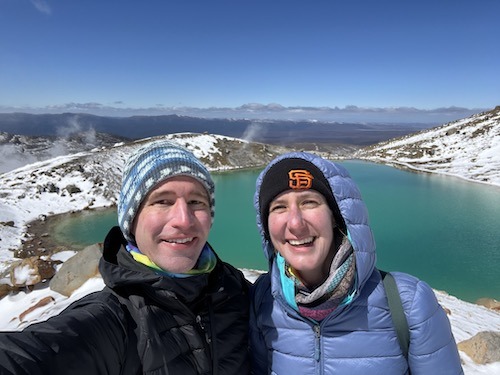
Narrowing Your List Down
So for us, we decided on Latin America and SE Asia, with one month in New Zealand and lots of time back in San Francisco with my family and old friends. Our priorities for our year off were:
- Spend time with my family and old friends
- See wildlife on land
- See wildlife in the water snorkeling
- See incredible landscapes we’d heard about for years and always wanted to see
- Experience new cultures
- Get to know different countries as much as we could- experience life there and not feel like a rushed tourist
- See life at other international schools when possible
- Visit friends around the world
- Do bucket-list items we’d always wanted to
Our list of places we decided to go to:
- Indonesia– for the best snorkeling in the world, the orangutans, culture, food, affordability
- Thailand, Vietnam, Cambodia, and Laos- for archeology, food, wildlife, hospitality, affordability
- New Zealand– for the Great Walks, some of the most spectacular multiday hikes in the world
- Mexico, Belize and Guatemala- archeology, food, landscapes (volcanoes!), snorkeling, art, affordability
- Costa Rica- wildlife, ecotourism
- Peru- archeology, the Inca Trail, food, culture, nature (desert, mountains, rainforest), affordability
- Bolivia- the great Salt Flats of the world, affordability
- Argentina- for Iguazu Falls and canyon country (much more to see but we chose New Zealand over Patagonia for this time- next year off!)
- Chile- I studied abroad here and wanted to see my old host family, as well as show my husband San Pedro de Atacama and Valparaíso
- San Francisco– we came back to my parents’ home throughout the year off to spend time with old friends and family. It was also important down time and planning time!
I’d recommend all of these places for different reasons for your year off, depending on what interests you the most. It was also really important for us that we went to a home base (San Francisco for us) between trips. It was in San Francisco that I booked flights, read guidebooks, decided on our priorities in each country, and booked accommodation.
That home base meant when we were traveling, I didn’t have that much research to do on my phone. I could enjoy where I was, and make just minor decisions like where to eat each night instead of bigger ones like where to go next that would have required hours of staring at my phone. I did book all accommodation refundable so that I could change our places if we really didn’t like/did like a place or the weather was really not cooperating.
Over time, I will publish posts and make itineraries for all of these places, so subscribe by downloading your free 3 day Amsterdam itinerary to find out when I publish ones for the rest of the world! If you want to see all of my detailed itineraries ready for you to take on your next trip, please check them out here. Hope you take the time off for yourself! Best decision we’ve ever made.


